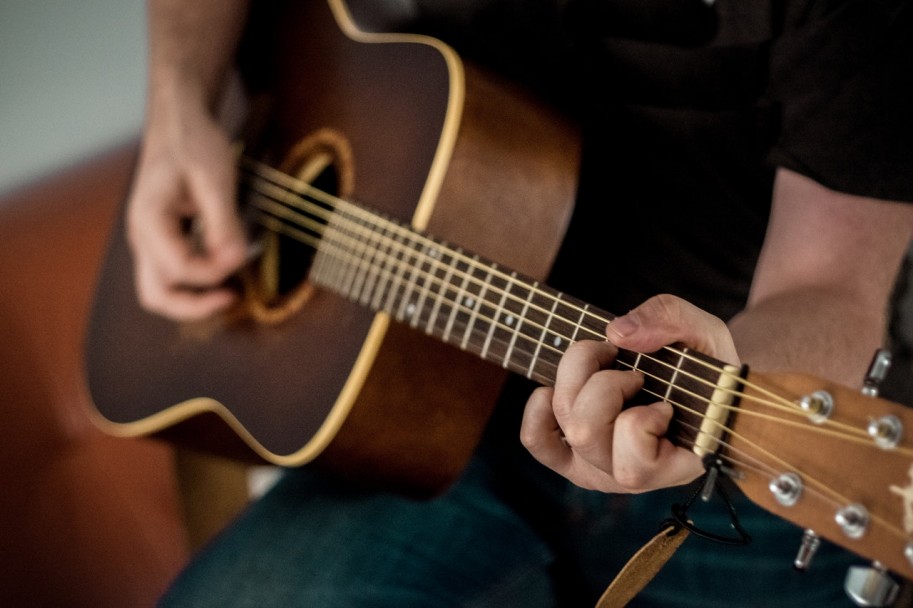
The best way to learn how to play instruments is to buy one for yourself and practice as much as you can. If you are partial to stringed instruments, then consider getting a classical guitar. In this article, we discuss why this is a great option for novices and music lovers in general.
Why You Should Get a Classical Guitar
1. Nylon Strings
A lot of people choose acoustic guitars for their first instrument. Although this has its own advantages, you have to deal with the steel strings present in these guitars. They tend to be hard on the fingers and often triggers the formation of callouses. Meanwhile, classical guitars use nylon strings which are easier to press down. These strings are good for beginners who have not yet developed a high degree of finger strength. You can practice longer and more often without getting hurt.
2. Distinct Tone
Choosing your first classical guitar lets you enjoy their distinctive tone. They just sound different when played alongside the typical acoustic and electric guitars, both of which have their own merits as well. If you like the sound of Spanish and Brazilian music with heavy strings, then this is the way to go. You can mimic the sound once you master the classical guitar.
4. Finger Picking
Although classical guitars are more forgiving, they can also be used to build up finger strength and dexterity. It all depends on what you do with it. After learning the basics of chords and strumming, you might sign up for advanced courses on fingerpicking. This technique is commonly used in classical playing so you should be able to find several instructors who can teach you about it. You may even check out online courses and learn at home.
5. Transferable Skills
At the end of the day, guitars are very much alike. If you pick a classical guitar as you first strings, then you can develop skills that will also serve you well when you try playing an acoustic guitar or an electric guitar. After all, the build, the frets, and the music principles are pretty much the same across the board.
What to Look for in a Classic Guitar
1. Suitable Size
A lot of beginners are excited to play during the first month or so but they end up stopping due to roadblocks. The best way to make a habit stick is to make it as comfortable and convenient to play. Having your own guitar is an important part of this since you can reach of it any time you want. The instrument should be of a suitable size for you so that you don't feel like straining when wrapping your arms around it and playing for a long time. Children and petite adults should go for 3/4 classical guitars or smaller.
2. Affordable Price
For your first ever guitar, you don't have to go big and empty your wallet. This is just to learn the basics, develop muscle memory, and see if this instrument is for you. You can splurge later once you get serious and you get a better appreciation of what different models provide. Beginner guitars are typically available between $100 and $200 but quality suffers. Meanwhile, professional guitars costs several thousands. You will generally get what you pay for. Cheaper guitars tend to be factory made while expensive guitars are handmade for they get extra attention from expert craftsmen. We recommend choosing a classical guitar under $500 but more than $300 to get the best bang for the buck as a beginner.
3. Reputable Brand
Opt for a guitar from a reputable brand. They earned their status after decades of producing excellent products and providing commendable service to customers. Most of these will be happy to provide a replacement if you run into trouble with your instrument. They tend to have better manufacturing methods and standards. Most shops carry them so you can try them out in your local stores.
4. Quality Wood
Consider the quality of the wood used in various parts of the guitar. The soundboard, also known as the top wood, is the most important component because this has the greatest influence on the tone. Solid wood is ideal while cheaper guitars use plywood. Good options are cedar, spruce, and mahogany. As for the fretboard, rosewood is common but mahogany is also available.
5. Lasting Hardware
You want your guitar to last as long as possible so you can learn everything you need with an instrument that you are accustomed to. See to it that you pick a model with lasting hardware so you won't run into longevity issues and need repairs multiple times. Pay attention to the materials used for the nut, saddle, head, and tuning pegs. These can also affect the way it sounds.
Taking Care of Your First Classical Guitar
Once you have found your ideal classical guitar, take good care of it by placing it in a case while in storage or transit. This will protect it from dust, bumps, insects, humidity, and temperature fluctuations. Polish the fingerboard with oil regularly so your hand slides across with ease. This will also create a protective barrier from sweat. Replace the strings every now and then as these tend to go out of tune frequently with age.
* This is a contributed article and this content does not necessarily represent the views of classicalite.com



